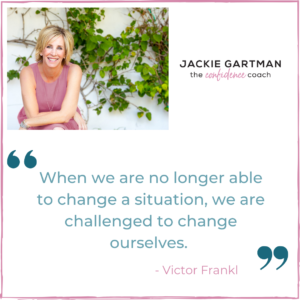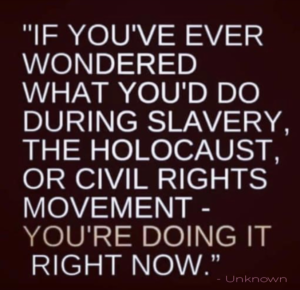 Like most people, I have a hard time when someone criticizes me. Okay, I may be downplaying this. The truth is that I sometimes get pissed off, feel defensive, and even, depending on who it is, want to punch that person in the face.
Like most people, I have a hard time when someone criticizes me. Okay, I may be downplaying this. The truth is that I sometimes get pissed off, feel defensive, and even, depending on who it is, want to punch that person in the face.
“Who do they think they are?!” I have fumed to myself. “How dare they speak to me like that!”
These are not my finest moments, but they are completely understandable. When we come under what feels like verbal attack, we feel hurt and/or angry and try to justify or explain ourselves. Byron Katie, surely one of our foremost mental hygiene experts, says we get defensive because the “criticizer”’ has exposed what we consider our hidden secret: the part of ourselves we don’t want anyone to see. Carl Jung called this the shadow self, and in simple terms, it’s the dark parts of ourselves that we reject, suppress, resist, or deny.
Everyone has a shadow self. And when we judge others, it is that shadow we’re projecting onto them. An example: let’s say your family doesn’t understand what you do for a living. At an extended family gathering, an older relative tells you that you should just give up this “coaching thing,” whatever it is, and “get a real job.”
She’s likely triggered and worrying about her own financial security, and projecting this onto you. You, in turn, may also get triggered. She’s tapped into one of your worst fears about yourself: that you are playing at a career for which you are probably inadequately trained, you will never get enough clients, and you will slowly and inexorably slide into financial ruin and wind up on the streets filching food from dumpsters. Now you are BOTH responding from shadow. Chaos and ill will ensue.
You have choices, but one of them does not include changing the person criticizing you. So you can stick with the yucky feelings criticism engenders, or you can use criticism as an opportunity to step outside the situation and see what’s there for you. Hello, AFGO (Another Fucking Growth Opportunity)!
When I studied with Bryon Katie, I learned that when people judge you, and you get upset or defensive, your own mind’s attack is the culprit of that stress. In other words, we armor up to defend against our “dark shadow”, the one we work so hard to keep from being exposed. Stress is an opportunity to forgive yourself for those flawed parts of you and ultimately to forgive the other person.
Katie says forgiveness is when you realize that what you think happened didn’t. Whoa! In other words, we have painful beliefs that we need to address. In the above example, it might be worth looking at what the black-and-white truth of the matter is and look at how our thoughts limit us.
Let’s break this down:
Your relative says you should quit coaching. What she means is that she doesn’t understand the profession and that she’s worried about your well-being. In accepting whatever objective truth can be found in her criticism – coaching can be poorly understood, not all coaches are financially successful, you yourself have times of doubt, etc. – you learn how to end the war within yourself and the one you perceive you are having with your relative.
It might go like this:
Your aunt tells you that you should give up coaching and get a “real” job. You see that she truly doesn’t understand what coaching is, nor consider it legitimate. Why would she see it that way?
- Lots of people don’t understand coaching. She’s older and even less likely to get it.
- What “coaching” means is poorly defined and often confusing to many people.
- Many coaches themselves worry about whether they can be financially successful and stable.
With these thoughts in mind, it’s easier to understand your aunt’s point of view. She’s never been coached, she doesn’t understand what you do, and she’s worried you won’t thrive. Her criticism makes sense, and you can see that the only reason it hurts is that it resonates with fear inside yourself. Seen this way, you can accept her concern, acknowledge at least internally that you have felt those feelings yourself, grow from that realization, and not have to engage her in argument. Her criticism becomes not a hurtful judgment, but an opportunity to get clear and clean with yourself on your own fears and feelings.
Cool! You might not have confronted this for yourself if your aunt hadn’t brought it up!
So the next time someone criticizes you, ask yourself, “Why would this person/or these people see or experience me this way?” and “What shadow is this bringing up for me?” When you are able to distinguish between what’s theirs (their thoughts, worries, pain) and yours, then even the snarkiest comment becomes an opportunity to look within, ask gently what is true for you, and find your shine.





